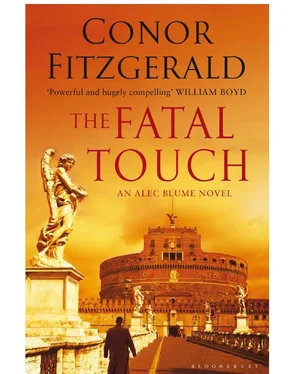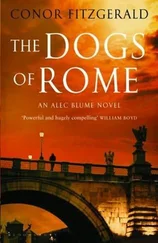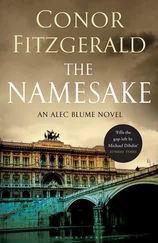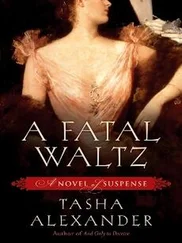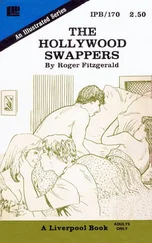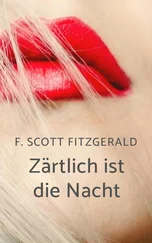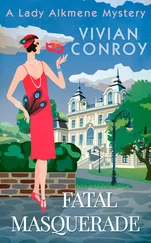Conor Fitzgerald - Fatal Touch
Здесь есть возможность читать онлайн «Conor Fitzgerald - Fatal Touch» весь текст электронной книги совершенно бесплатно (целиком полную версию без сокращений). В некоторых случаях можно слушать аудио, скачать через торрент в формате fb2 и присутствует краткое содержание. Жанр: Полицейский детектив, на английском языке. Описание произведения, (предисловие) а так же отзывы посетителей доступны на портале библиотеки ЛибКат.
- Название:Fatal Touch
- Автор:
- Жанр:
- Год:неизвестен
- ISBN:нет данных
- Рейтинг книги:3 / 5. Голосов: 1
-
Избранное:Добавить в избранное
- Отзывы:
-
Ваша оценка:
- 60
- 1
- 2
- 3
- 4
- 5
Fatal Touch: краткое содержание, описание и аннотация
Предлагаем к чтению аннотацию, описание, краткое содержание или предисловие (зависит от того, что написал сам автор книги «Fatal Touch»). Если вы не нашли необходимую информацию о книге — напишите в комментариях, мы постараемся отыскать её.
Fatal Touch — читать онлайн бесплатно полную книгу (весь текст) целиком
Ниже представлен текст книги, разбитый по страницам. Система сохранения места последней прочитанной страницы, позволяет с удобством читать онлайн бесплатно книгу «Fatal Touch», без необходимости каждый раз заново искать на чём Вы остановились. Поставьте закладку, и сможете в любой момент перейти на страницу, на которой закончили чтение.
Интервал:
Закладка:
“Sure. Let’s hope I can answer,” said Blume.
“Are you working with the Colonel on the investigation?”
“We are both public servants,” said Blume.
“Oh.”
Blume waited patiently as Nightingale picked his next words carefully. Like so many other suspects, Nightingale was about to fall victim to the delusion that words pronounced slowly somehow gave less away.
“You may hear that Harry and I were not getting on. I just want you to know we never did. Not really. We needed each other and there were many shared experiences, but we were too different. If anything I felt a greater cultural affinity with Farinelli.”
“You consider the Colonel a friend?”
“A friend, good God, no!” said Nightingale, immediately forgetting to pick his words with forethought. “Anything but. The Colonel is never a friend. Look, would you mind terribly if I asked you another question.”
“Shoot,” said Blume.
“Did you and the Colonel find any writings?”
Blume made a show of not understanding.
“Such as manuscripts, papers, typescripts, something along those lines, so to speak?”
“That’s an interesting question,” said Blume. “Tell me why you asked it.”
“Did you find anything? Tell me that first.”
“No,” said Blume. He saw a slight release of tension around Nightingale’s eyes, so out of interest for the effect it would have, he added, “But I can’t speak for the Colonel.”
Nightingale had relaxed a little when he said he had found nothing, and seemed to relax even more when he suggested the Colonel might have.
Blume said, “I told you that I found nothing. Now it’s your turn to tell me why you are asking.”
“Yes, well, about a month ago, Harry told me he had been writing his memoirs, but was beginning to be afraid he might not live to see them turned into a book. He also told me he was working on a second book, which had separated itself from his memoirs and was turning into a manual for what he liked to call ‘practitioners.’ He meant painters, restorers, forgers, some dealers, even canvas and brush manufacturers. Not the galleries or the art historians. I said I could edit them for him if he died and make sure they got published, but he laughed and said he couldn’t let me do that because I’d destroy them and he intended to outlive me anyhow… ha! Sorry if I sound a little callous here.
“I took this as a sort of threat, especially after the kindness of my gesture to edit his work, and we argued. It was a bad argument, too. One of our worst and, as it turns out, our last. I asked him why I would want to destroy his work, and he said because there were parts in it that concerned me. I told him he had a duty to show me what was in his notes. He taunted me, said there was plenty of stuff in there and that people would soon enough find out what sort of a person I am. That was bad enough, because no one likes to have their personal affairs published for all the world to see, but there was another question about which Harry was not even aware, and it had to do with his… well, our, line of business.”
Nightingale faltered and Blume intervened to reassure him. “His forgeries, is that what you’re shy of saying?”
“No, as it happens, I am not shy at all,” said Nightingale. “You see, Commissioner, the art world’s got different rules. Different principles and behavior. Let’s just say for the sake of argument that I were to admit to placing forgeries on the market over the years. In the first place, I would be protected from prosecution for almost all of them by the statute of limitations. But even if I spoke openly of a forgery sold yesterday, almost all the other interested parties and the people involved in the transaction, especially those who invested good money in it, would be so keen to attest to its authenticity that no one would be allowed to believe me. I would have to work really hard to prove that what I sold was not authentic. Very hard indeed. It’s not easy to self-incriminate in this line of work.”
“Does Henry provide evidence of forgery in his writings?”
“In the writings you did not find?”
“Yes, in those,” said Blume.
Nightingale settled himself more comfortably in his armchair. “Back in the 1930s, Commissioner, there was an American collector called Joseph Duveen. Perhaps you’ve heard of him?”
Blume shook his head.
“Well, this Duveen was a genuine expert, with both an eye and historical knowledge, which is a rare thing indeed. In an article he wrote, Duveen happened to mention that a version of a very famous painting La Belle Ferroniere, supposedly by Leonardo da Vinci, was a fake. Now, bear in mind that the people who were in the process of selling the ‘discovered’ work had a quite unbelievable story to begin with. I mean, really-they hardly even tried to make it convincing. But they did insist on its authenticity, and aggressively, to boot. With barefaced… sfacciatezza — I don’t think English even has a word for that sort of attitude-”
“ Chutzpah,” said Blume.
“If you can call that an English word,” said Nightingale. “The point is the work was purportedly a second copy made by da Vinci-the artist famous for not even finishing off his own originals, let alone making copies. So when Duveen said fake, you probably think the vendors would have hidden their faces in shame and pulled the work from sale. Au contraire. Declaring that Duveen had depreciated their profits, they sued him for damages, and won. They bankrupted the poor chap. The painting was duly sold and is still attributed, sort of, to da Vinci, even though no one believes that anymore.”
“If you are untouchable, I fail to see why you should be worried about what Treacy wrote,” said Blume.
“Reputation, Commissioner. As he got on in years, Harry became more and more open about his forging activities, till he was practically shouting it from the rooftops, though it is worth mentioning he did not start doing that until he stopped producing work that was skilled. I did not depend all that much on him. The relationship was the other way around, really. Even if he had been producing magnificent interpretations of grand masters once a month..”
“Interpretations, huh? I thought you weren’t shy of the word forgery.”
“Fine, then, forgeries. We could hardly be selling a discovered grand master once a month. There are limits to what the market will accept. I had quite high volumes of trade in areas that did not concern him, including sculpture. But two years ago, Harry even started sending letters to museums around the world, claiming authorship of various paintings. None of them ever purported to take him seriously, though one or two old masters subsequently vanished from display, often ‘for cleaning.’ Some of Harry’s claims were bluffs, and sometimes I thought he was becoming delusional, genuinely believing he was the artificer behind works that he had never touched. The thing is, Harry was bursting to tell the world what he had done, which is not really what one wants to hear.”
“So you would not have edited his writings, you would have destroyed them.”
Nightingale looked offended. “I would have edited them, not destroyed them. I might have made a lot of cuts. The best editors cut out more than they leave in.”
“I see,” said Blume. “And so who better to tell about the notebooks than someone who knows the business, knows you and Treacy, and has authority. You contacted Colonel Orazio Farinelli and told him about the notebooks, didn’t you? It should have been easy for the Colonel to get them, but maybe he delayed. Maybe he was doing a deal with Henry.”
“I can’t even begin to fathom what you are trying to say, Commissioner.”
“OK, fathom this: when we or the Carabinieri get called out to a scene, our job is not to gather evidence that can be used against a person, but to gather evidence that a crime has been committed in the first place. That’s phase one. The law is very clear on this point. Our evidence cannot really be used as part of the prosecution case unless the prosecutor successfully applies for an incidente probatorio — I’m afraid I can’t translate that for you. It means using the preliminary evidence retroactively if it turns out there is a perpetrator. After our preliminary phase, we report to the investigating magistrate who chooses which force to use and, from then on, it is up to the magistrate to direct inquiries. Of course, we still have the power of initiative and can make suggestions, but all this comes after we have declared the existence of a suspected crime. Are you following this?”
Читать дальшеИнтервал:
Закладка:
Похожие книги на «Fatal Touch»
Представляем Вашему вниманию похожие книги на «Fatal Touch» списком для выбора. Мы отобрали схожую по названию и смыслу литературу в надежде предоставить читателям больше вариантов отыскать новые, интересные, ещё непрочитанные произведения.
Обсуждение, отзывы о книге «Fatal Touch» и просто собственные мнения читателей. Оставьте ваши комментарии, напишите, что Вы думаете о произведении, его смысле или главных героях. Укажите что конкретно понравилось, а что нет, и почему Вы так считаете.
